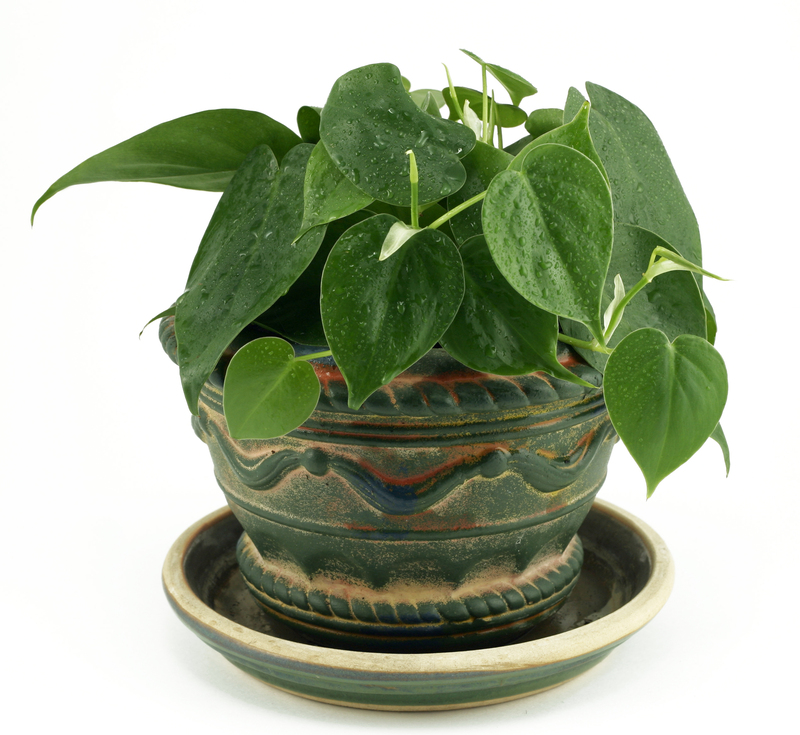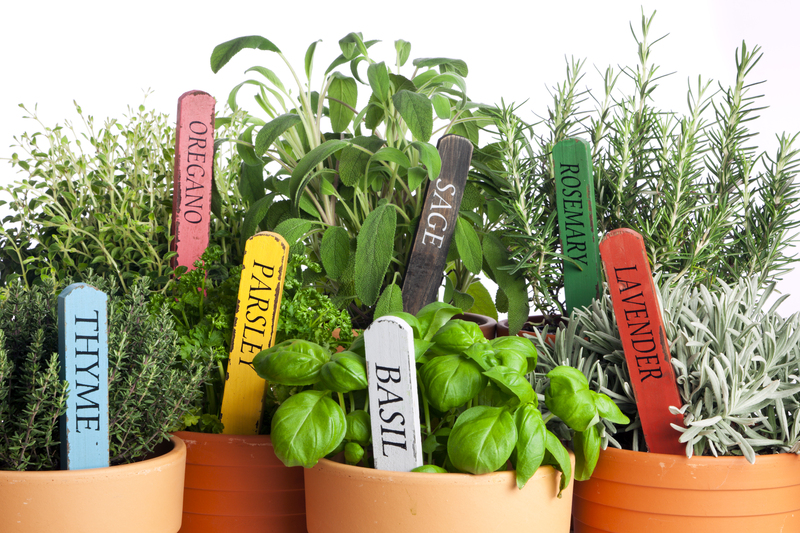Explore Peaceful Zen Garden Concepts for Your Space
Posted on 09/06/2025
Explore Peaceful Zen Garden Concepts for Your Space
Are you yearning for a tranquil retreat within your home? Exploring peaceful Zen garden concepts is a timeless way to infuse any space with calm, beauty, and mindfulness. Rooted in centuries-old Japanese tradition, Zen gardens are not only visually stunning but also encourage introspection and serenity. Whether you have a sprawling backyard or a compact balcony, adopting Zen-inspired garden ideas can transform your surroundings into a restorative sanctuary.
What is a Zen Garden?
A Zen garden, also called a karesansui or dry landscape garden, is a stylized landscape carefully composed of rocks, water features, moss, pruned trees and bushes, and gravel or sand that is raked to represent ripples in water. Zen gardens emphasize simplicity, minimalism, and the symbolic recreation of nature, inviting meditative contemplation and peace.
Key Elements of a Traditional Zen Garden
- Rocks and Stones: Symbolize islands, mountains, or animals.
- Gravel or Sand: Represents water or ocean waves.
- Moss: Used for lush texture and calming green hues.
- Minimalist Planting: Carefully chosen evergreens or moss undercover to maintain year-round tranquility.
- Lanterns or Bridges: Add understated elegance and focal points.

Benefits of a Peaceful Zen-Inspired Garden Space
Integrating Zen-inspired garden concepts into your home environment has numerous benefits:
- Reduces stress: The clean, uncluttered spaces and natural elements promote relaxation.
- Encourages mindfulness: Raking gravel or meditating among garden stones is soothing and meditative.
- Boosts aesthetic appeal: A Zen garden's minimalist design complements any style, from modern to traditional.
- Low maintenance: Once established, a Zen garden requires minimal care compared to traditional gardens.
- Promotes harmony: Zen principles balance natural and artificial features, creating a harmonious setting.
Design Concepts for Your Peaceful Zen Garden
Ready to create a peaceful Zen oasis in your space? Let's explore some creative and practical Zen garden ideas suitable for gardens of all sizes.
1. Miniature Tabletop Zen Gardens
If you're short on space, consider crafting a mini Zen garden for your desk or coffee table. These small-scale gardens use tiny rakes, sand, pebbles, and miniature sculptures to invite calm into your daily routine. Miniature Zen gardens are ideal for apartments and workspaces, offering a portable dose of tranquility.
- Materials: Shallow tray, fine sand, small stones, figurines, mini rake.
- Tip: Trace patterns in the sand to help clear your mind between tasks or meetings.
2. Courtyard or Patio Zen Garden Concepts
Transform your small outdoor space into an urban Zen retreat by using gravel or stones as groundcover, adding a stone lantern, and placing a simple water basin for soothing sounds. Select a few evergreens or bamboo for a balanced, lush touch, and keep lines clean and plantings sparse.
- Opt for: Flat stones as seating, potted juniper, and weathered wood accents.
- Lighting: Incorporate soft solar lanterns for evening relaxation.
3. Full-scale Backyard Zen Gardens
If you have more space, the ultimate tranquil Zen garden concept involves creating winding gravel paths, large boulders, a dry streambed, and perhaps a wooden bridge or teahouse. Use natural boundaries--fencing, hedges, or bamboo screens--to create privacy and enhance the meditative mood.
- Features: Gravel rivers, rock groupings, stone lanterns, moss carpets.
- Maintenance: Minimal--just routine raking and tidying to maintain order and serenity.
4. Zen Balcony Gardens
Don't let lack of a yard limit you! Urban dwellers can easily incorporate serene Zen concepts on balconies:
- Use pebble tiles or gravel trays for flooring.
- Potted bamboo or boxwood for privacy and greenery.
- Small stone sculptures or pagoda lanterns as focal points.
- Bench or floor cushions for seating and meditation.
Pro Tip: Even a single potted maple or carefully placed rock can embody Zen philosophy on a balcony.
Step-By-Step Guide: Creating a Personal Zen Garden
If you're eager to start designing a peaceful Zen-inspired retreat in your home or yard, here's a step-by-step guide to help you get started:
Step 1: Choose Your Location
- Seek a quiet area, out of direct foot traffic, that allows for privacy and meditation.
- Consider sunlight and shade; Zen gardens thrive in both, especially with evergreen plants and moss.
Step 2: Plan Your Layout
- Sketch a simple design on paper, balancing empty space and focal features.
- Decide where larger elements (stones, lanterns) and pathways will go.
Step 3: Select Materials and Features
- Sand or Gravel: White or gray for a traditional look.
- Stones and Rocks: Various sizes for contrast and visual interest.
- Water Basin or Stone Lantern: As a meditative focal point.
- Minimal Plants: Moss, Japanese maple, dwarf pine, or bamboo.
Step 4: Install the Garden
- Clear and level the area. Lay down a weed barrier if needed.
- Add a layer of sand or gravel, about 2-3 inches deep.
- Place rocks and larger features purposefully; odd numbers and asymmetrical shapes evoke nature.
- Plant moss or evergreens sparingly--less is more.
- If desired, add a water basin, lantern, or bridge for extra character.
Step 5: Maintain and Enjoy
- Rake gravel regularly, making wavy or straight lines to represent water.
- Trim plants as needed and remove fallen leaves or debris promptly.
- Spend time in your garden for meditation, yoga, or simple reflection.
The essence lies in mindful maintenance and presence.
Inspirational Peaceful Zen Garden Design Ideas
Classic Karesansui (Dry Landscape Garden)
Emulate famous temples such as Ryoan-ji with meticulously raked gravel, artful stone placements, and absolute minimalism. This style captures the austere beauty and symbolism of Zen philosophy.
- Ideal for: Those seeking a contemplative, low-maintenance design.
- Aesthetic: Subtle, with great emphasis on negative space and monochrome color palettes.
Tea Garden (Chaniwa)
Integrate a rustic stone pathway, bamboo fence, and a water basin (tsukubai) to create a meditative approach to your home or patio. Tea gardens are often slightly more lush, using moss and small shrubs to soften the landscape.
- Features: Stepping stones, lanterns, moss, water bowl.
- Feeling: Hospitable, welcoming, and ideal for inviting guests to a mindful tea ritual.
Moss Garden
For shaded yards or cool, moist climates, a Moss Zen Garden offers lush, velvety groundcover. Combine with smooth rocks, minimal gravel, and ferns for a cool, calming effect.
- Tip: Keep foot traffic low to preserve the delicate moss carpet.
- Maintenance: Watering and gentle weeding only.
Zen Garden Tips for Every Space
- Start Small: Even a single rock or bamboo water feature introduces harmony and focus.
- Use Asymmetry: Nature rarely grows in perfect symmetry. Arrange stones and plants with intentional imbalance for authenticity.
- Focus on Texture: Mix rough and smooth, soft mossy patches, and crisp gravel for rich visual interest.
- Keep It Simple: Resist the urge to clutter--clarity of design calms the mind.
- Engage the Senses: Choose fragrant evergreens, the gentle sound of water, or the sensation of cool stones underfoot.
- Incorporate Personal Touches: Place a favorite sculpture, a weathered lantern, or simple wind chimes for a unique, personal flair.

Common Mistakes to Avoid in Zen Garden Design
- Overcrowding: Avoid filling your garden with too many objects or plants. Emptiness is as important as presence in Zen aesthetics.
- Ignoring Scale: Choose rocks and features that suit your garden's size--too large or too small disrupts harmony.
- Poor Materials: Use natural, organic materials whenever possible; avoid colorful plastics or artificial stone.
- Improper Plant Selection: Stick to evergreen, slow-growing, and drought-tolerant species for ease and authenticity.
Conclusion: Embrace Tranquility with Your Zen Garden
In an increasingly busy world, dedicating a portion of your home to a peaceful Zen garden concept offers daily moments of calm and reflection. Whether you create a simple sand-and-stone arrangement on your balcony or build an expansive moss-covered sanctuary, the Zen garden philosophy teaches us to value simplicity, be present, and find renewal in nature's embrace.
Ready to bring harmony to your space? Use these Zen-inspired ideas to create a personal haven that soothes the spirit and delights the senses.
Frequently Asked Questions about Peaceful Zen Gardens
-
Do Zen gardens need water features?
Not necessarily. Traditional Zen gardens symbolize water with raked sand or gravel. However, a small basin or fountain can add gentle sound and further tranquility if desired. -
What plants work best in Zen gardens?
Evergreens like dwarf pines, boxwood, moss, and bamboo are popular. Flowering plants are rarely used, as the focus remains on subtlety and year-round calm. -
Are Zen gardens suitable for apartments?
Absolutely! Mini Zen gardens or small balcony designs bring the same peaceful appeal to compact urban spaces. -
How do I maintain a Zen garden?
Rake the gravel regularly, keep elements tidy, and prune minimal plants. Ongoing mindful care is part of the calming ritual.
For more inspiration on peaceful Zen design and to receive ideas tailored to your space, explore Zen garden concepts today and start your journey toward serenity!
```
